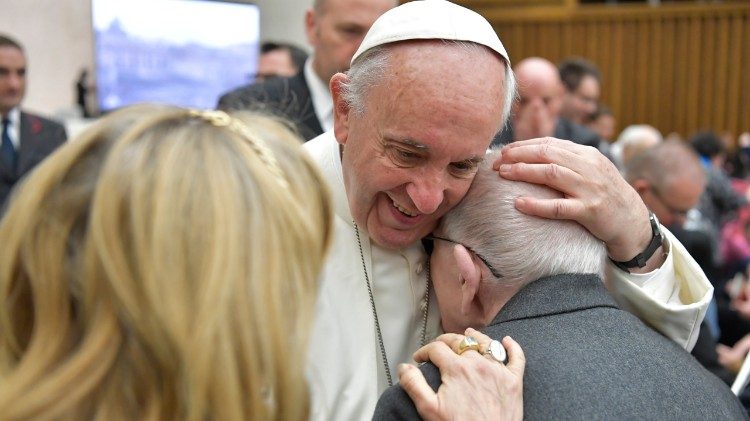Heschel Centre for Catholic-Jewish Relations at the Catholic University of Lublin
24 February, 2025
2 min
Sunday Psalm: Rahamim – The Father’s Tenderness
When a person feels on the verge of collapsing under the weight of sin and guilt, rahamim—God’s tender mercy—reveals itself. Like a loving Father, He lifts His child from the abyss and offers a new beginning. God is not a harsh judge waiting for failure. He is Love – writes Fr. Dr. Piotr Kot from […]

Fr. Kot highlights, “Psalm 103 is one of the most beautiful blessings ever spoken by a human being in praise of God. Since ancient times, it has been considered the ‘pearl of the Psalter.’ During the Second Temple period, rabbis often paired it with Psalm 104, recognizing in both an awe-filled admiration for the greatness of the Creator.”
He further explains, “Psalm 103 is the voice of a person who has encountered God’s action. It is a prayer flowing from the very depths of the soul. The greatness of God becomes most evident where human fragility meets the Father’s tenderness. The psalmist’s wonder at God’s gentleness pulses through the entire poem like the beating of a heart.”
In Jewish tradition, Psalm 103 became the foundation for the blessing that precedes the famous Shema prayer (“Hear, O Israel”), in which Israel proclaims, “The Lord our God, the Lord is One.” “What makes God so unique?” asks Fr. Kot. “Above all, it is His tender love for His people.”
In Christian tradition, Psalm 103 is seen as prophetic. As the biblical scholar from the Heschel Center explains, “This means that it revealed the mystery of God as Father long before it was fully made known by His Son, Jesus Christ.” Psalm 103 serves as a perfect commentary on St. John’s words: “God is love” (1 John 4:8). “It is also a beautiful illustration of Jesus’ parable of the prodigal son in the Gospel of Luke, where the father welcomes his lost child home with great tenderness,” Fr. Kot notes.
Psalm 103 reminds us that God’s love knows no boundaries. No matter how far we have strayed, the Father is always ready to welcome us home with open arms.
Related

A Meeting of Hope in St. Peter’s Basilica: Trump and Zelensky
Exaudi Staff
27 April, 2025
2 min

Saying Goodbye to Francis
Exaudi Staff
26 April, 2025
2 min

The Family: A School of Love, Forgiveness, and Hope
Laetare
25 April, 2025
3 min

Pope Francis: Leadership That Transforms Through Service
Javier Ferrer García
25 April, 2025
4 min
 (EN)
(EN)
 (ES)
(ES)
 (IT)
(IT)

